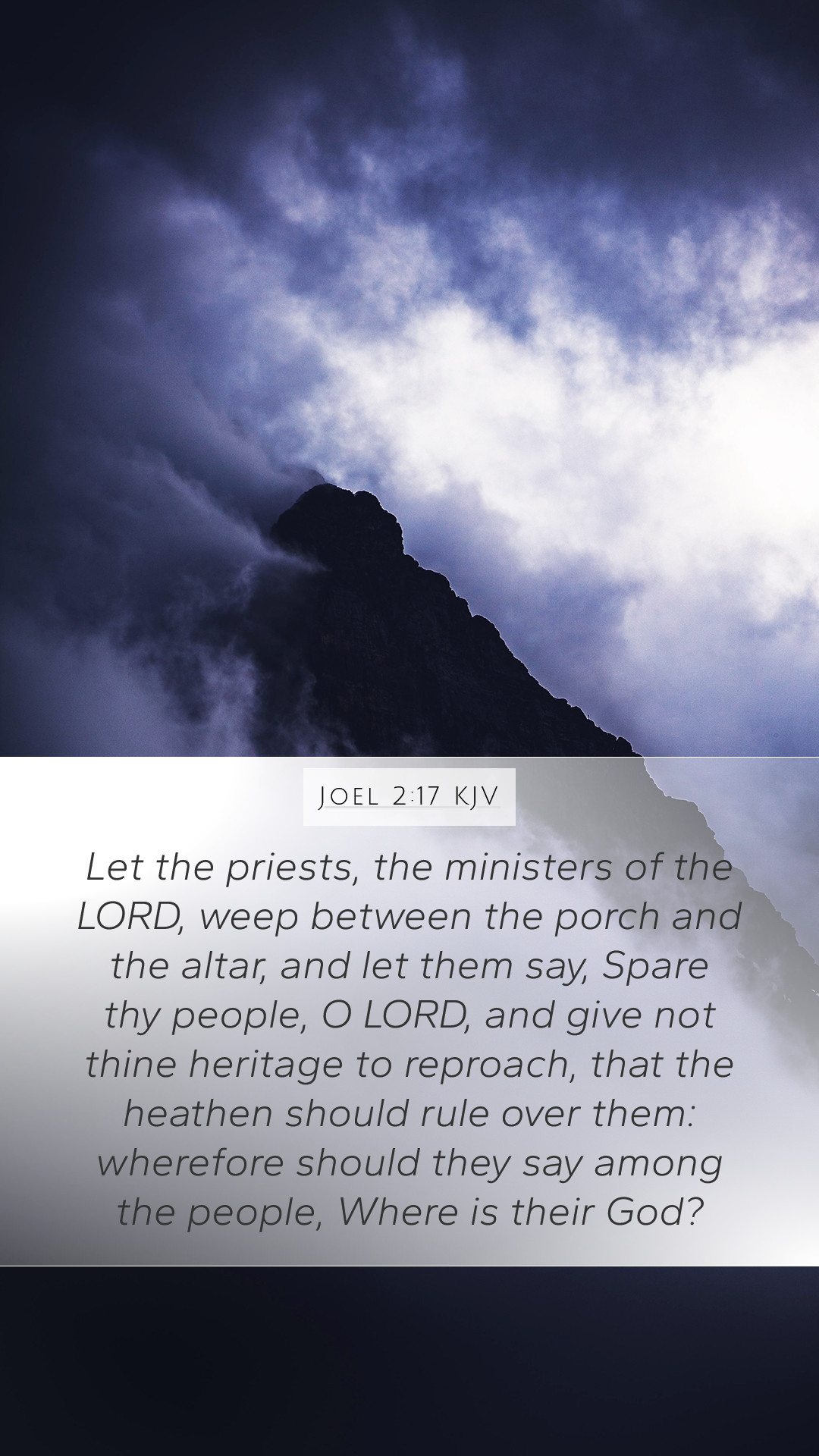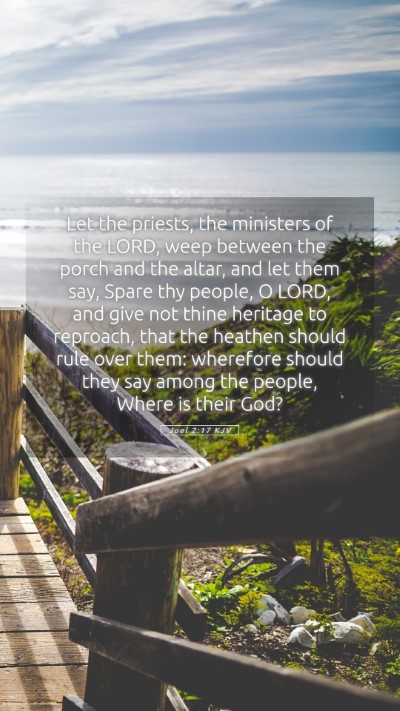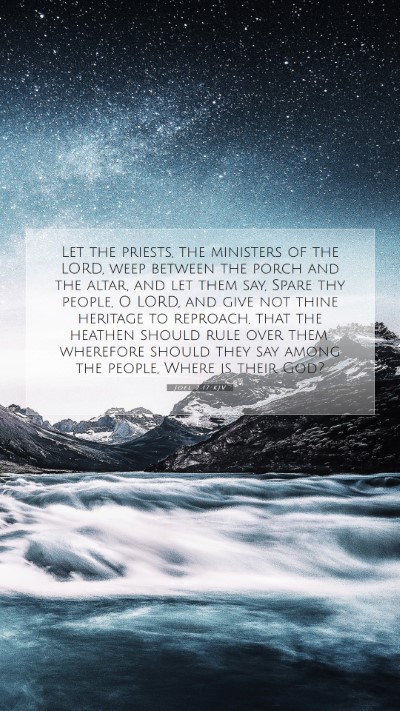Understanding Joel 2:17
Bible Verse: Joel 2:17
Joel 2:17 states:
"Let the priests, the ministers of the Lord, weep between the porch and the altar, and let them say, 'Spare Your people, O Lord, and do not give Your heritage to reproach, that the nations should rule over them. Why should they say among the peoples, 'Where is their God?'"
Summary and Commentary
This verse is a call for intercession from the priests who are to stand in the gap for God’s people. The essence of the message in Joel 2:17 resonates with themes of repentance, prayer, and restoration. Throughout biblical history, priests often served as mediators between God and the people, and their role here is underscored by a need for deep emotional and spiritual engagement in the process of seeking God’s mercy.
Contextual Background
The book of Joel addresses the consequences of sin and the importance of returning to God. This particular verse is part of a larger exhortation for the people of Israel to repent and seek God's favor. The locust plague that devastates the land symbolizes impending disaster brought upon by their disobedience, prompting urgent calls for prayer and penitence.
Commentary Insights
- Matthew Henry: Henry highlights the priests' unique position and their responsibility towards the people during a time of crisis. He emphasizes the need for tears of repentance as they plead for God’s mercy, which should be sincere, echoing phrases of desperation for God's intervention.
- Albert Barnes: Barnes elaborates on the plea to spare the people, interpreting it as a lament not just for physical restoration but for the spiritual honor of God. He discusses the importance of recognizing God’s presence amidst suffering and the shame that the nations might adhere to Israel's fallen state.
- Adam Clarke: Clarke focuses on the public display of repentance indicated in this verse. He asserts that true reconciliation with God requires visible and heartfelt contrition on behalf of the spiritual leaders and that their actions deeply affect the entire community’s standing before God.
Applications and Implications
Joel 2:17 presents vital applications for today. It beckons us to consider our own lives and roles within our communities:
- Intercessory Prayer: Just as the priests were called to intercede, we too are encouraged to pray fervently on behalf of others, seeking God's mercy and guidance.
- Public Expressions of Repentance: The call to weep between the porch and the altar signifies the need for authentic expressions of sorrow for sin, encouraging church leaders and congregants alike to embody humility and willingness to turn back to God.
- Cultural Reflection: The verse urges us to reflect on how our actions align with the honor of God’s name in our communities. The question of ‘Where is their God?’ can resonate with how we display our faith publicly.
Cross References
- 2 Chronicles 7:14 - A call for humility, prayer, and seeking God's face for healing.
- Zechariah 12:10 - A spirit of grace and supplication poured out upon the house of David.
- Psalms 30:5 - Emphasizes the idea that God's anger lasts only a moment, while His favor lasts a lifetime.
Conclusion
Joel 2:17 provides critical insights into the nature of intercession and the importance of humility and sincere repentance before God. This verse not only serves as a historical reminder but also extends its message applicable in contemporary devotion, highlighting the continuous need for God’s mercy and the longing for His presence among His people.
Further Study
For deeper understanding, engage in group discussions or online Bible studies focusing on themes of repentance, intercession, and communal faith responses found in the prophetic books of the Old Testament. Utilize various Bible study resources to further explore other prophetic voices that call for turning back to God.
Keywords Summary
This analysis of Joel 2:17 aids in enhancing our Bible verse understanding through careful Bible verse interpretations, and provides Bible study insights that encourage practical application in our daily lives.


